Sometimes life feels like it is spinning out of control. Pet care disappears before a trip. A health diagnosis or injury catches you off guard. Money issues leave you feeling unprepared. Worries pile up. An event ends with a different outcome than you expected. It happens. What if you surrender control, and instead, focus on the habits you need to acquire and skills you need to develop to reach your goals?
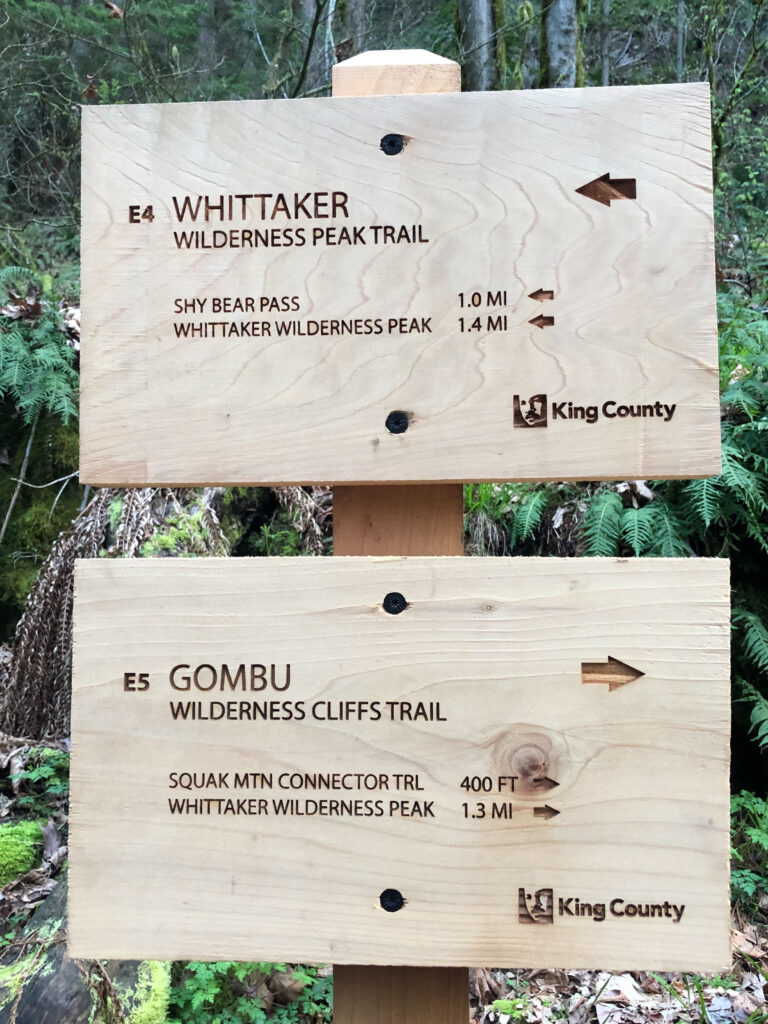
Whittaker Wilderness and Doughty Falls
Last week, Ajax, a hiking friend, and I visited Whittaker Wilderness Peak adding a loop including Shy Bear Pass to Doughty Falls. Our trip started great. We were first on the trail, with beautiful weather, upbeat moods, and time at the summit to grab a snack and sign the summit registry before continuing to explore Cougar Mountain.
But I overestimated how much mileage she could safely handle, leaving her dehydrated, in pain, and overly tired. A little less than a mile from the trailhead, I left her resting to dash back to the car with Ajax and bring her extra water. The word she used at the end of our hike was “miserable.”
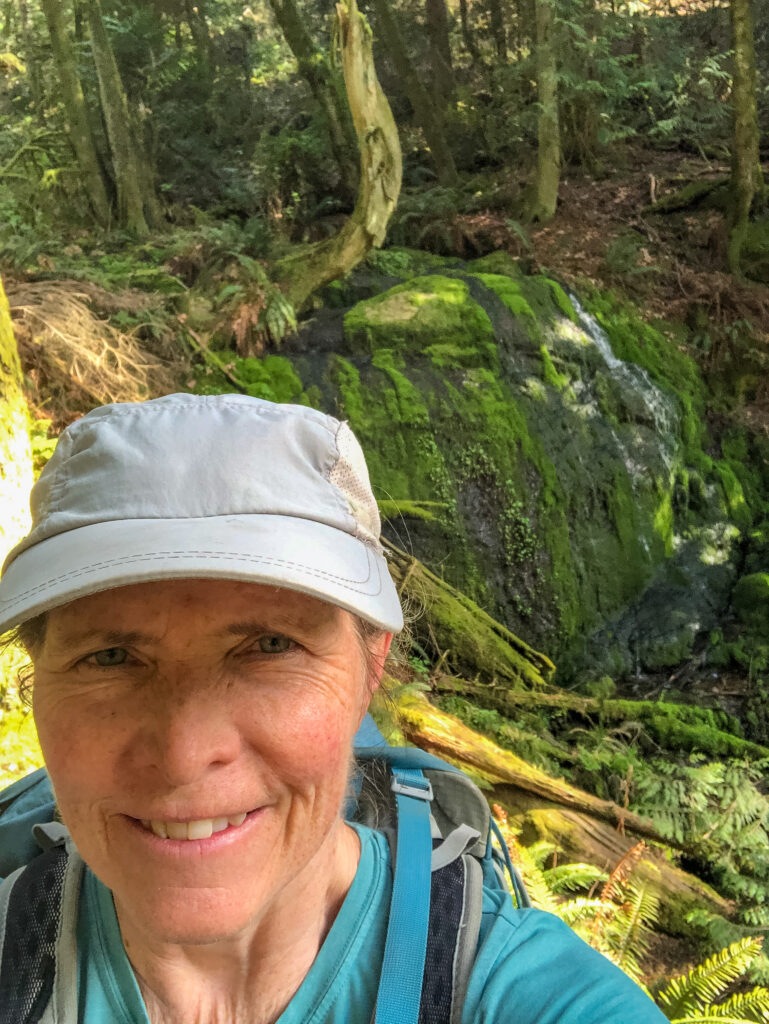
I shared posts about this particular trail in How to Assess Your Progress (June 2023) and Expect the Unexpected (July 2023). In both, the outcome was far from optimal. Is it me or the trail? Am I trying too hard to control the outcome, choosing what feels easy (to me) to gently push my partners – my dog, my daughter, my friend – into more mileage than they’re ready for?
The Essence of Control
When you think of control, what comes to mind? The vanilla definition of control is “the power to influence or direct people’s behavior or the course of events.” Many of my clients mention feeling “out of control” around food, or not being able to exercise because of “situations beyond their control.” What makes you lose control?
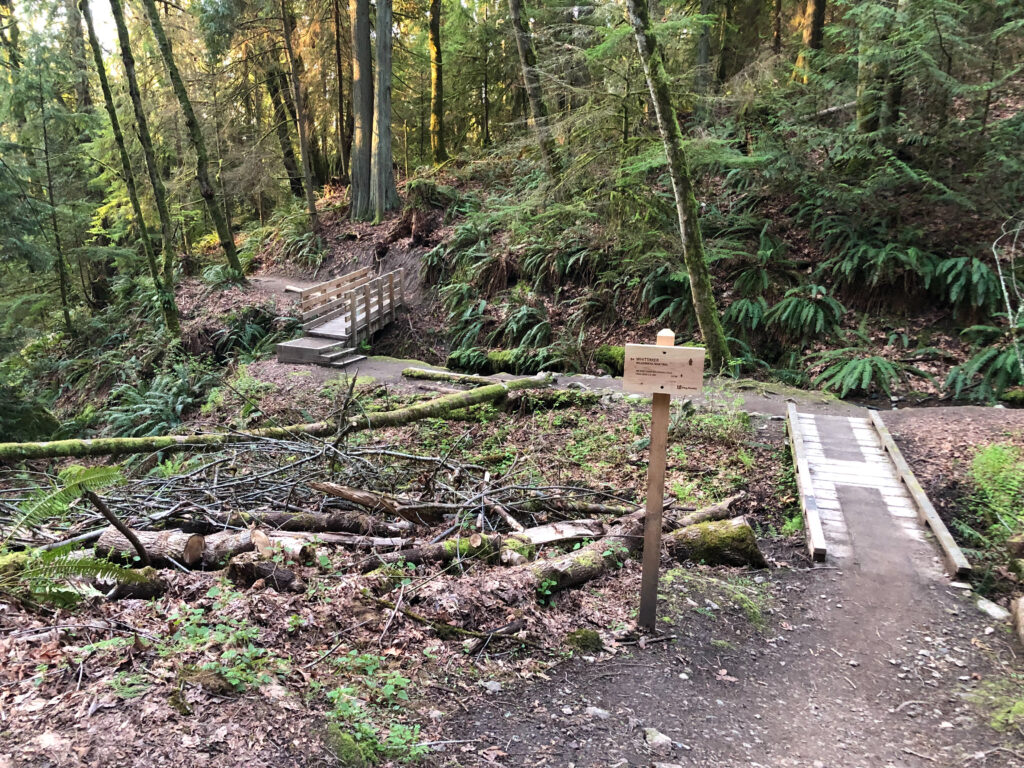
Now it’s your turn to explore your ideas and feelings about control. Please jot down some notes for the following questions:
The Illusion of Control
Reflect on a moment when you felt completely in control. What elements were actually under your control, and what elements were not? Precision Nutrition has a worksheet called the Spheres of Control that might help you explore what areas of your life you have control over and which you don’t.

Surrender Control
Think about a time you had no choice but to surrender control. How did it make you feel, and what was the outcome? Did other people around you seem to have control, and if so, over what? What did you learn from the experience? If you had to do it again, what would you do differently?
Surrender Control in Physical Challenges
In February of 2024, I shared a post on process and outcome goals. In physical challenges, an outcome goal might be “summit Mt. Rainier” over which we have little control. A process goal might include “carry a pack with increasing weight over increasing distance and elevation gain weekly” over which we have more control.
When you consider physical challenges like a hike, you can’t control the weather, but you can control the route you choose. You can control who you hike with, but not how they do.
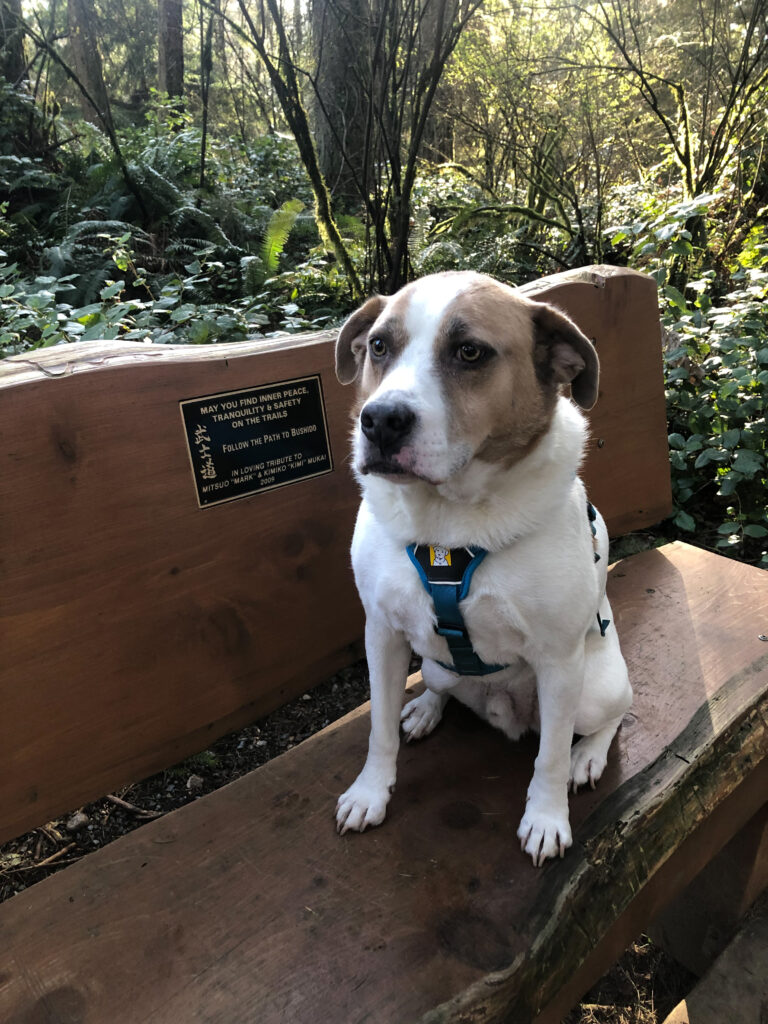
The Body’s Limits and the Mind’s Role
Now it’s your turn. Recall a physically challenging experience. This might include facing a goal that pushed you past previous limits. Getting a physical diagnosis that shocked you into changing your actions. Recovering from an injury or illness that required a lot from you both physically and mentally.
Did you listen to your body’s signals, or did your mind push you to ignore them? What might that say about your relationship with control? Use the Sphere of Control exercise if it helps.
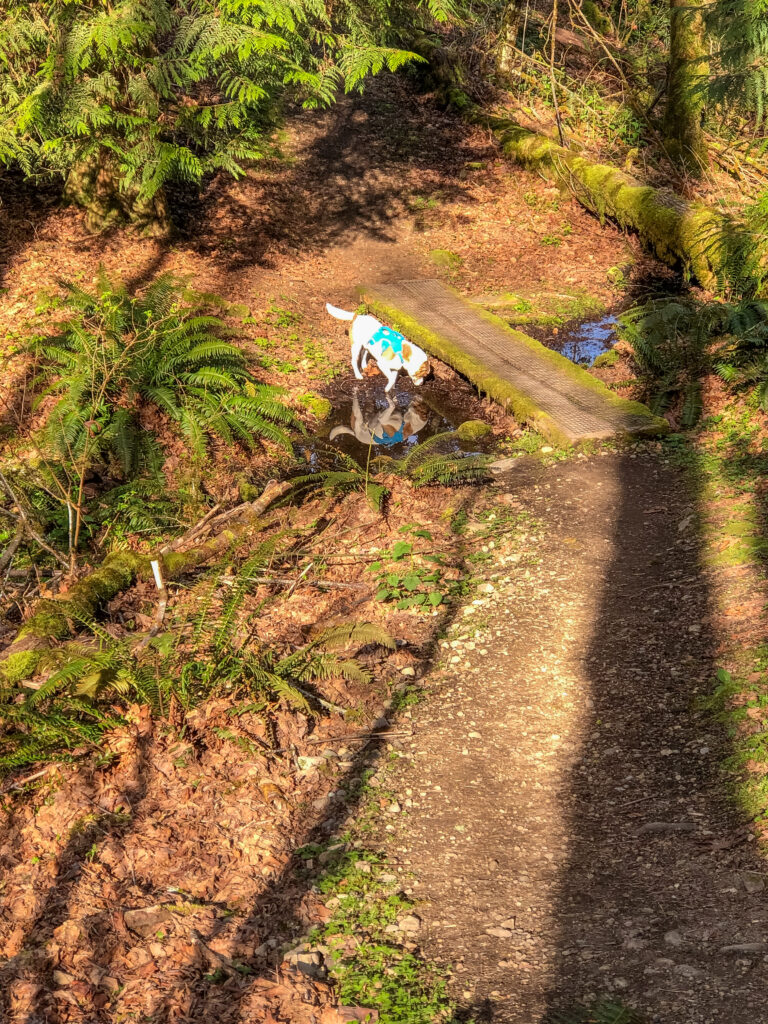
Preparation vs. Adaptation
Consider how preparation for an event (like training for a mountain climb, hike, or triathlon) differs from adapting in the moment. Which do you lean towards, and how does that affect your sense of control? If you have a physical goal in mind, how much of your preparation relies on gaining skills? on creating consistent habits that will help you get ready?
How much depends on luck and “winging it?” What would it feel like to surrender control over some aspect of preparation for a physical goal?
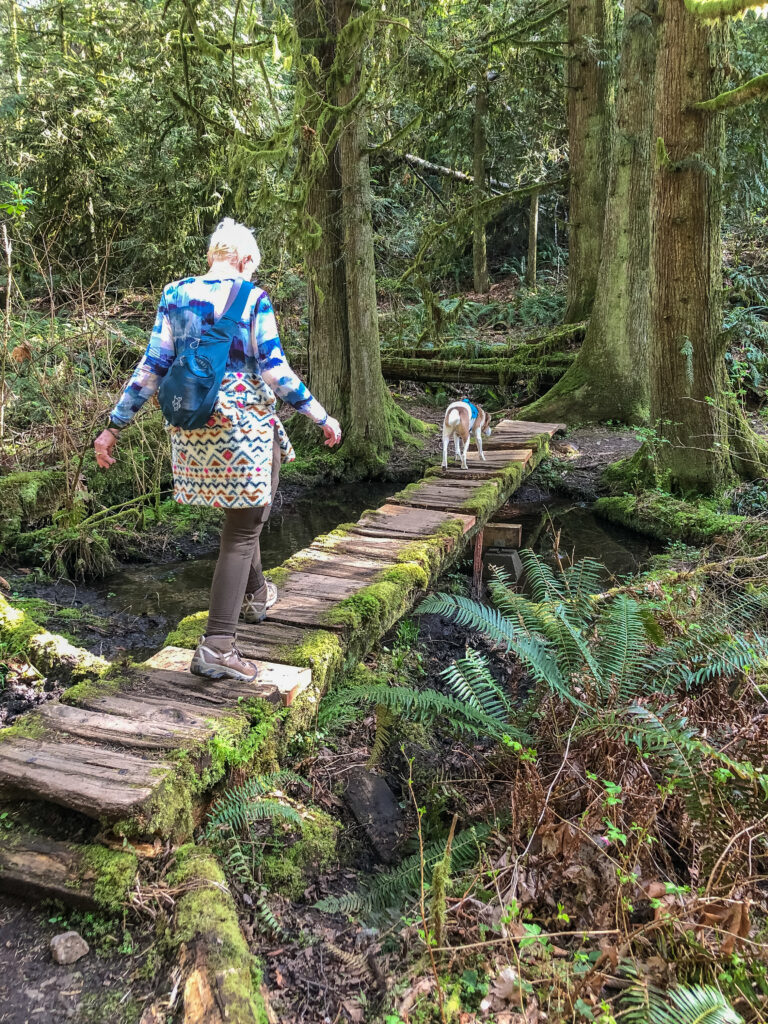
Surrender Control in Relationships
The last two aspects of control include supporting others and impact on well-being.
Supporting vs. Controlling
One of the trickiest parts about being a coach rather than a personal trainer is to surrender control to the client. For 25 years as a personal trainer, I got used to asking for two more repetitions or telling clients what exercise they would do next. A good coach, on the other hand, remains client-centered and asks what the client feels they need.
Personal trainers control the environment, the workout, and in that regard, the outcome. Coaches are collaborators, equal partners, and guides. As I grapple with evolving into a 100% coach, that line blurs when I need to hold firm.

Reflect on a time when you had to support someone else through a challenge. How did you balance offering support without taking control away from them? What might you do differently to surrender control that isn’t yours in the first place?
The Role of Control in Wellness
This morning I have a medical appointment I’ve been nervous about for a few days. I have no control over the outcome of the tests. But I do have control over two things: my reaction and the actions I take beyond today.
I have overcome every physical challenge I’ve faced in the past fifty years, including natural childbirth, healing broken bones, removing unhealthy addictive behaviors, and coping with unexpected health diagnoses. Whatever new information I learn, I know I will continue to make the best choices possible.
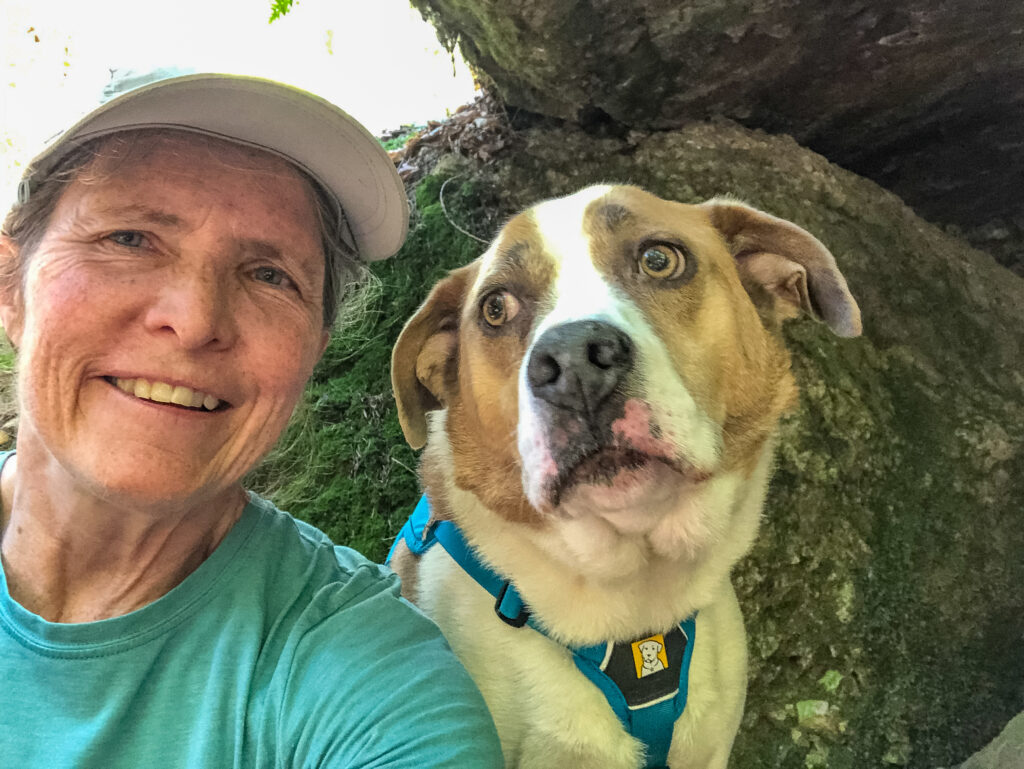
Your turn. How does your desire for control impact your wellness journey? Does it stress you out? Could you surrender control to lead to greater well-being?
Take-Aways about Control
This week I’ve continued to rewrite my control stories. My hiking partner hiked solo this week, reclaiming her power and succeeding on a trail that challenged her a few months ago. By being willing to teach her, I’m also learning from her.
By focusing on controlling the actions we take (our process goals), we can influence our outcomes. We can’t control others’ performance, but we can support them so they have a more comfortable experience. Likewise, we can’t control how our bodies do on a given day, but we can acquire skills around proper hydration, physical training, gear selection, fueling, recovery, and pacing to enhance the outcome.
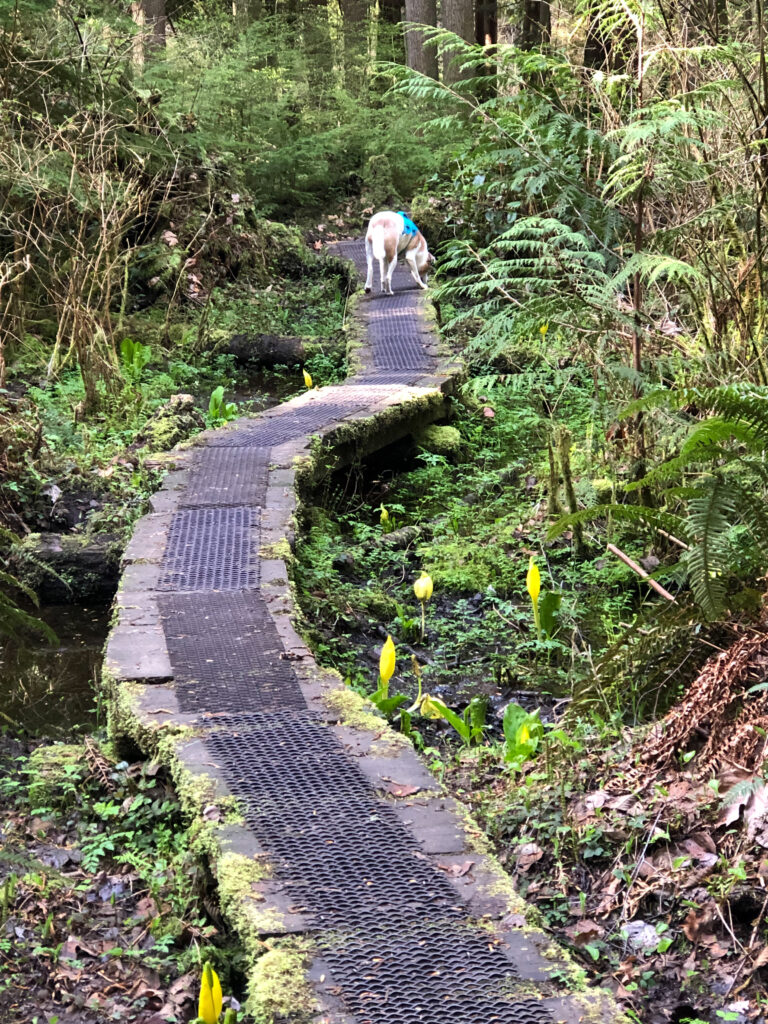
Feel free to explore your reactions to these prompts in your journaling or reflection practice and share any insights in the comments so that we can all benefit, learn, and grow.

